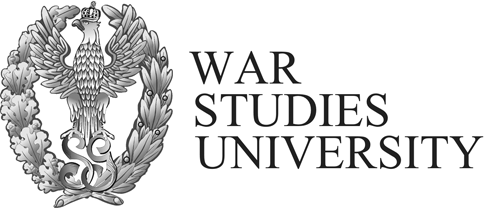In this review, we look at the development of the intellectual frames of defence studies. A good reason for this is the publication by Routledge of a new collective work on research methods. The editor of the volume is Delphine Deschaux-Dutard (University Grenoble Alpes) and the author team consists of more than a dozen scientists from leading European research institutions. Publications on defence science methodology are rare on the global scientific market. Defence issues are taken up by military personnel, economists, political scientists, geographers or historians. The catalogue of scientific approaches to this issue remains interdisciplinary. Therefore, the publication of this book is a significant event on the international publishing market. It is worth looking at the findings of Professor Deschaux-Dutard's team.
The structure of the book is as follows. The book consists of an introduction, eleven chapters and conclusions. Six chapters are devoted to qualitative methods and another five to quantitative methods. We will discuss the structure of the book and the content of each chapter, and comment on the findings in terms of the development of contemporary research.
The introduction (Introduction: why methods matter in defence studies) is a key part of the publication. The editor of the volume points out that there have been three decades of growing interest in defence in the social sciences. Common issues include the use of force, conflicts, and the professionalisation and technologisation of security. Numerous works on defence studies have already appeared on the publishing market, but few in the field of methodology. Professor Deschaux-Dutard points out that there are studies in the field of military science, but they only consider defence from a typically military perspective. Meanwhile, defence policy also involves historical, economic and geographic issues. New types of threats, such as terrorist attacks on civilians, show that the broadest possible understanding of defence is needed. At the same time, the author says, it is important to distinguish defence from the art of war, which is narrower (it focuses on armed struggle in the military sense), and from security studies, which are broader than defence studies. The publication fills a niche that has not been filled by textbooks such as Qualitative Methods in Military Studies (Carreiras and Castro, 2011), The Routledge Handbook of Research Methods in Military Studies (Soeters, Shields and Rietjens, 2014), and the broader Oxford Handbook of International Security (Gheciu and Wohlforth, 2018). The purpose of the book is to provide the reader with overviews of the methods used in various social sciences to study the area of defence.
Amael Cattaruzza's (University Paris 8, Military Academy Saint-Cyr Coetquidan) article (Defence studies and geographic methodology: from the practical to the critical approach) deals with the relationship between defence studies and geography. A geographical perspective allows us to analyse conflicts, design fields of confrontation, and report on the advantages of some countries over others. The author notes the importance of the development of cartography and geostrategy, followed by geopolitics. He also mentions the ideological entanglements involved in the practical use of geographical knowledge by military personnel in various colonial and pan-European conflicts. He also notes critical geopolitics, which deals with ideological rather than physical spaces. Geography is important because it provides detailed data and levels of conflict analysis. The latest challenge is satellite navigation and spy systems. In modern geography, there is a blending of social science and technical science approaches. Therefore, the importance of both traditional geostrategy and new approaches will grow.
In the next chapter (Defence studies and public law: emergence, affirmation and methodology of a research field), Anne-Sophie Traversac (University Paris II Pantheon-Assas) emphasises the importance of the interaction between international law and issues of defence and armed struggle. Knowledge of contemporary international relations (e.g., border disputes) is essential to defence studies. Specifically, it is the ability to interpret government documents, treaties or strategies. The importance of these issues is growing as the Internet and cybersecurity become more important.
Christophe Lafaye (Institut de Recherches Stratégiques de l'Ecole Militaire, IRSEM) explores the importance of historical methods to defence studies (the title of the article is: Historical methods in defence and war studies: the case of historical defence studies in France). He does so using the example of France and the development of the institution of war history research. The author notes that the major task for modern historians will be to create archives and databases to study the war experience of the 21st century. Such knowledge will also make it possible for human knowledge and experiences to be documented. A weakness of the article is the almost exclusive adoption of the perspective of the French education system. It is well written, but the scope could be broadened.
Laurent Borzillo (Université du Québec à Montréal) and Delphine Deschaux-Dutard present the development of secondary analysis (the title of the article is: Secondary analysis of qualitative data in defence studies: methodological opportunities and challenges), which involves researchers analysing quantitative/qualitative data collected by other researchers and creating new theories based on that data. This methodology allows for improved explanations of observed social phenomena. This is especially important in sociology, where data on social changes is compared. For similar reasons, this knowledge may be useful for defence studies. Meta-analyses of this type also allow researchers to keep up with development of research in other countries and related topics. This can enhance communication between researchers, but also creates the risk of unauthorised borrowing.
Catherine Hoeffler (Sciences Po Bordeaux) explores the relationship between public policy and defence studies (article: Public policy and defence studies). The author notes that defence is an important part of the political agenda-setting process, that is, giving political meaning to various events. The purpose of this process is to shape public opinion and its attitude towards various phenomena. Defence policy, like other policies (e.g., trade policy, or foreign policy) has its own decision-making cycle, agenda, goals and means. The subject matter allows the quality of institutions that deal with defence to be examined. C. Hoeffler points out that such research has a limited chance of success in authoritarian countries. Its importance, however, will grow in countries linked by alliances and international organisations.
Gregor Richter (Bundeswehr Centre of Military History and Social Sciences, Potsdam) in his article (Sociological Methods in defence studies) explains the importance of sociological methods in defence studies. Interviews, surveys, questionnaires are just some of the tools used as part of these methods. Sociological research is the foundation of many social sciences. They make it possible to study people's views and attitudes and their relationship with the environment. Military organisations have a specific nature that can be studied in this way. Sociological methodology is the practical knowledge on creating research questions, methods of observation, or drawing conclusions from the results obtained. It seems that the presence of sociological methods in defence studies will remain indispensable.
Part two of the book discusses quantitative methods. In the introductory article (Quantitative analyses in defence studies), Mayeul Kaufmann (University of Grenoble) shows the areas of application of these methods in defence studies. The author points out data collection, risk assessment, conflict statistics and natural disasters. Issues such as simulations, defence economics, and supply of strategic resources are also important. The author emphasises the importance of econometrics, the development of statistics, formal modelling, and hypothetico-deductive inference, which emphasizes the need for hypothesis testing. In addition, the author notes the importance of induction, comparative studies and case studies. Today, gaining skills and tools within the area of quantitative methods is a trend of increasing importance. The number of databases and the reliability of the results obtained in this way is also increasing.
Databases are also mentioned in the next chapter (Databases for defence studies), written by the same author. Mayeul Kauffmann points out that the databases are created by research institutions such as SIPRI, COW, PRIO, HIIK and AKUF. They provide a wealth of data on armed struggles around the world. The advantages of this data include its transparency and a significant degree of objectivity. Data sources such as Eurostat, OECD, and the World Bank are also important. The challenge for this field of research is the rise of importance of Big Data and the computerisation of modern societies. This knowledge always requires interpretation. It seems that the ability to create and understand databases may be one of the future specialisations in defence studies.
In the next chapter (Economics methods for defence studies), Julien Malizard (Chaire ECODEF – IHEDN) discusses the importance of the methods used in economics for defence studies. The author emphasises the significance of defence economics, as well as the importance of defence and armaments to the economy. In particular, it is important to assess how much is needed to keep the population safe. Economics has advanced theoretical models, especially for decision making and interaction analysis. Economic knowledge has numerous indicators, indexes and measures for evaluating social phenomena. These issues can be important to the condition of the economy and the industrial sector related to defence.
The tenth chapter (Voting on the use of armed force: challenges of data indexing, classification, and the value of a comparative agenda) is a collaborative work by a dozen authors from different countries on the challenges for defence research, using the PDVD database as an example. The chapter does not fit thematically with the rest of the book, but it provides a valuable example of the debate over database content. The final chapter (The other civil-military gap: researching public opinion on security and defence policy) is devoted to research on public opinion on security policy issues. Its authors are Markus Steinbrecher and Heiko Biehl (both from the Bundeswehr Centre for Military History and Social Sciences in Potsdam). Public opinion polls are important especially in political studies. They allow for studying public support for various policies, social legitimacy and political culture. Polls are an important part of surveying public moods and learning about opinions on changes at home and abroad. These surveys allow us to examine public acceptance of, for example, armaments, defence spending, or the use of the military in various international operations.
In the conclusion (Conclusion: a plea for cross-fertilization of methods in defence studies), the editor of the volume sums up the contents of the book and formulates some programme conclusions. In her view, defence studies are a dynamic field of research. They are also interdisciplinary and, therefore, need pluralism. The author also points out that probably the main challenge for defence studies will be the development of data and its digitisation. She adds that the book does not exhaust all topics, but rather opens up space for further debate.
The book reviewed is clearly written, thematically consistent and concise. Every chapter contains a case study. The authors are from different research centres (mainly France and Germany), but refer to a common knowledge base. The bibliography of the volume is very extensive. The individual chapters provide a valuable overview of selected research methods in terms of the needs of defence studies. Each chapter could inspire a separate volume, and it seems that we can expect expansion of this publication series in future, as there are still few publications in this area. The book lacks issues related to media and conflict psychology, as well as typically military issues. Perhaps they will appear in a possible second edition?
Many authors dealing with security issues tend to create divisions in the science. The great value of the book under review is its attention is focused more on common issues, which are fields of interest in various sciences. It must be emphasised that different disciplines of science are complementary. Defence is an important topic for historians, economists, and geographers. So is research on trust, development, security and ecology. Today's sciences are creating research fields where synergy of multiple theories and skills is taking place. The product of this is interdisciplinary reflection to better understand the social world.
The book will be useful in the growing discourse on security in Central and Eastern Europe, where both traditional security issues and hybrid threats are present. The authors show that research on this issue can be performed in a variety of ways. The result is a final opinion that defence studies have broad prospects for development and should not be limited to narrow military science. The publication can inspire the development of research institutions, as well as individual scientists.




